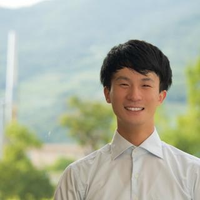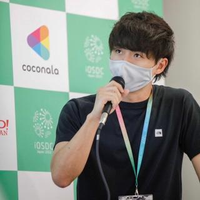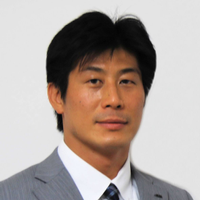(English Follows)
こんにちは!ベンチャーリパブリックのインターン、キアラです。私は、スタンフォード大学の2年生の年を終え、ベンチャーリパブリックでサマーインターンをしています。アメリカでは夏のインターンシップ自体はかなり一般的ですが、日本に来てインターンをする機会はまだ稀です。ちょうど今、インターン期間の中間地点ですが、私と同じように、海外からベンチャーリパブリックにインターンに来ている仲間たちに、インタビューしてみました。
ベンチャーリパブリックでのインターン生は、
ケン(スタンフォード大学 新2年生)、
クリスティーナ(マサチューセッツ工科大学 新大学院生)、
ニング(ミネルバ大学 新4年生)
と私、キアラ(スタンフォード大学 新3年生)の4名です。
ベンチャーリパブリックでどんなことをしている?
キアラ(インタビュアー):私は管理部で仕事をしていて、他のみんなは、システムチームと仕事をしているので、仕事は少し異なりますが、具体的にどんなことをしていますか?
ニング:ベンチャーリパブリックでは今、システムの次世代化に取り組んでいて、そのプロジェクトに入り、とても興味深い経験ができています。これまでの作業は、コーディング、リサーチ、そして主要な会議への参加などです。
ケン:今のところ特に印象的なことは、『WIT Japan & North Asia2019』という国際カンファレンスの運営スタッフをしたり、ベンチャーリパブリックグループのキックオフミーティングの幹事をしたりなど、ベンチャーリパブリックの社員たちと協力しながら、リアルタイムで異文化間の交流を目の当たりにできたことです。
クリスティーナ:システムチームでインターンにアサインされている仕事は3人ともそれぞれ異なりますが、3人ともシステムの次世代化という共通ミッションがあるので、やりがいがあります。
キアラ:ベンチャーリパブリックはどんな雰囲気だと感じていますか?
クリスティーナ:言語の壁はありますが、みんなとてもフレンドリーで、英語をあまり話さない人でも、私たちと積極的に話してくれます。
ニング:システムチームは外国籍スタッフもいるので、英語でコミュニケーションを取ることもできるし、プログラミング言語は世界共通なので、意思疎通がしやすいです。また、グループランチや社内イベントを通して、社員みんなと楽しく交流できています。
キアラ:私もとても楽しく交流できています。ベンチャーリパブリックの社風についてはどう思いますか?
ケン:ここは、伝統的・典型的な日本の会社という感じが全くなく、いつも、オフィスのどこかで話をしている人がいたり、開放的な文化があります。また、インターンにも会社の実務に直結したタスクを与えられ、かつ、任せてくれるので、やりがいがあります。
ニング:ベンチャーリパブリックは中規模の会社ですが、ヒエラルキーがなく、スタートアップ企業と伝統的な企業の中間のような文化があります。私たちはいつでも気軽に、社長も含め、みんなと話をすることができます。また、インターンもフレックスタイムを利用できるので、かなり良いワークライフバランスがあります。
キアラ:確かにそうですね。私も、ちょうど良い感じで、インターンに多くの機会を与えてくれると感じます。少し話を変えますが、これまでのインターンシップで良かったことは何ですか?
クリスティーナ:日本の会社は働きすぎだと聞いていましたが、ここではそんなことはありません。また、運営スタッフとして参加した『WIT Japan & North Asia2019』という国際カンファレンス(旅行×テクノロジーをテーマにしたもの)はとても素晴らしいもので、旅行業界のイメージが覆されました。国内外から550名超が参加したとても大きな会議で、私が今までに考えたこともなかったような色々な業界の色々な側面に触れることができました。
ケン:ベンチャーリパブリックでは、社員とインターンとの交流ランチが開催されるので、スタッフの経験や日常生活がどのようなものであるかについて詳しく聞いたりすることができました。東京の人気のあるレストランを教えてくれたり、オフィスの周辺の話をしてくれたり、交流ランチはとても良い経験の一つです。
日本での生活は?
キアラ:さて、東京での生活はどうですか?言語の壁はどうでしょうか。
ケン:東京ではほとんど困ることはありません。標識などの多くはバイリンガル表記がされているし、お店には多かれ少なかれ英語を話せる店員がいます。逆に、英語を使うことができてしまうので、日本語を上達させるチャンスがもっとあったらいいなと思います。
クリスティーナ:どこに行くかにもよりますが、ほとんど問題なく過ごせています。みんな親切に助けてくれるし、私は1年間しか日本語を勉強していませんが、郵便局でも問題なく用事を済ますことができました。
キアラ:Google翻訳もあるしね!東京で一番好きなところはどんなところですか?
ニング:便利な交通網や、素晴らしいナイトライフ、整備された環境、そして決まり文句だけれども食べ物!
クリスティーナ:交通機関は本当に時間どおりです。また、大都市の夜でも治安がいいです。ボストンと比較して、この点は本当にいいです。
ケン:それに加えて、道にゴミを捨てないので、キレイです。
キアラ:マイナスポイントはありますか?
ケン:果物がとても高い!アメリカでは、2~3個のリンゴを1ドルで買えますが、ここではリンゴ1個買うのに、3ドルくらいします。
ニング:魚介類以外のものはすべて高いと思います。魚介類も高いものは高いですよね。
インターン後はどうする?
キアラ:インターン後はどうする予定ですか?大学に戻りますか?
ケン:スタンフォードで2年生の新学期が始まる前に、故郷のカナダのバンクーバーに戻る予定です。また、このインターンシップで学んだことを大学の授業でも活用できるといいなと思います。
クリスティーナ:私は秋から大学院に進学するので、大学院生活を楽しみたいと思います。
ニング:ミネルバ大学は世界各地で学ぶので、大学4年生の期間は、ロンドンと台北で学んだ後、2020年5月の卒業に向けてサンフランシスコに戻る予定です。ミネルバ大学で色々な国を転々として学んだ経験から、どこか1ヶ所に留まって働くことはあまり考えていません。
最後に
私、キアラは、スタンフォードに戻る前に、京都で大学3年生の1学期を過ごす予定です。私たち4人のインターンはみんな、このインターンシップで良い経験を積むことができているので、残りのインターンシップも楽しみながら頑張りたいと思います。
= English =
My name is Kiara, I just finished my sophomore year at Stanford University, and I’m one of Venture Republic’s four international interns for the summer. While summer internships themselves are fairly common, interning in Japan for a company like Venture Republic is a rare opportunity. We’re still only about halfway through our internships, so there’s a lot more to come, but I sat down with my fellow interns to discuss what exactly it’s like to intern at Venture Republic, especially as someone who isn’t from Japan.
The interns this year (besides me) are:
Ken Hong, a rising sophomore at Stanford University,
Christina Liao, a rising master’s student at MIT, and
Huey Ning Lok, a rising senior at Minerva Schools @ KGI.
Working at Venture Republic
Kiara: So, there is some overlap with events and whatnot, but we do slightly different jobs, since I’m working with the administrative team and you three work with the systems team. What have you guys worked on?
Ning: The company is currently going through major tech transitions and upheavals, so it's pretty interesting to be caught in the middle of it. The tasks so far have been a distribution of coding, research, and getting involved at major conferences.
Ken: One thing that I love about the internship experience is that we get to witness cross-cultural exchanges in real-time as we collaborate with our Japanese coworkers on exciting tasks, such as helping out with the Web in Travel conference or planning party games for the semi-annual kickoff.
Christina: As far as technical work goes, each of us has different responsibilities — but they’re mostly about modernizing the company’s codebase or investigating new technologies.
Kiara: And what is it like working for VR?
Christina: People here are pretty friendly despite the language barrier. Even the people who don’t know much English are open to talking to us.
Ning: The tech team is quite diverse, so we communicate in English, and programming languages are universally understood anyway. I've also really enjoyed getting to know other people in the company through group lunches and events.
Kiara: I’ve definitely enjoyed getting to know the people here as well. What about the work culture?
Ken: I feel that it’s definitely more progressive than the traditional Japanese working environment — the fact that there are usually people talking somewhere in the office makes it feel welcoming as well. As an intern, I appreciate the low-pressure, yet high-expectation working environment: while we’re not constantly monitored as to our progress, we are given tasks that are engaging and relevant to the company’s operations.
Ning: VR isn't that hierarchical although it's a mid-sized company. It's like a mix between a startup and a traditional company — we get to talk to the CEO (Kei), and most people are pretty chill. And, we as interns have a pretty good work-life balance due to the flex-time benefits.
Kiara: Right, it’s kind of like there’s a lot of stuff for us to do, but it isn’t unreasonable or too much. Changing gears a little, what’s your favorite part of the internship so far?
Christina: I like that we’re not just doing random busywork, which I’ve heard is common in other companies in Japan. The WiT (Web in Travel) conference was also really educational, particularly since none of us had been exposed to the travel industry before. It was a really big conference as well — it covered a lot of different areas of the industry that I had never really thought of before.
Ken: The company also organizes lunch outings with employees and interns where we got to hear more about their experiences working with the company and what daily life is like for them. They even shared some of their favorite Tokyo food spots — and some of the latest gossip floating around the office. These lunches were definitely one of the highlights of my experience so far.
Living in Japan
Kiara: Okay, now what about living in Tokyo? How’s the language barrier, for one?
Ken: Pretty much as long as you’re in Tokyo, you’re fine. Many signs are bilingual, and shops usually have clerks that speak a little English. On the other hand, it’s a little too easy to use English as a crutch, and I do wish sometimes that there were more chances to improve my Japanese.
Christina: It depends on where you go, but it’s usually okay. As long as you’re polite, people will try to help you out. Even though I’ve only studied Japanese for about a year, I’ve been able to get around fine, though some things like using the post office were challenging.
Kiara: Plus, there’s always Google Translate. How about your favorite part of Tokyo so far?
Ning: Convenient access to most places, great nightlife, beautiful surroundings, and, it’s cliché, but the food.
Christina: Also, the transportation system is actually on time, and even though it’s a big city you still feel safe at night. Compared to Boston, those aspects are really nice.
Ken: On top of that, people don’t litter, so the streets are very clean.
Kiara: Any downsides?
Ken: Fruit is very expensive. In America you can get a pound of apples for about a dollar but here it’s like 3 dollars for one apple.
Ning: Everything is expensive except maybe seafood, I think. And even then it depends on what seafood is in season.
After VR
Kiara: Okay, finally, what are your plans for after the internship? Back to school?
Ken: I will be going back to my hometown of Vancouver, Canada before starting my sophomore year at Stanford. Hopefully, I will have a chance to put the things I learned during this internship into practice in some of my coursework.
Christina: I’m going back to MIT in the fall and I’m very excited to be starting my master’s degree.
Ning: I’m finishing my last year in London and Taipei, then going back to San Francisco in May 2020 to graduate. After studying & working in several different countries via Minerva, I don’t really have a set physical destination in mind for pursuing a future career.
Conclusion
For my part, I’ll be spending a semester in Kyoto before heading back to Stanford for the rest of my junior year. I think that I speak for all the interns when I say that this internship has been a great experience so far, and we’re incredibly excited for the rest of it.
/assets/images/81617/original/2ac1c8d7-263a-432f-90de-9cb5bfe4afb1.jpeg?1423558203)


/assets/images/81617/original/2ac1c8d7-263a-432f-90de-9cb5bfe4afb1.jpeg?1423558203)




